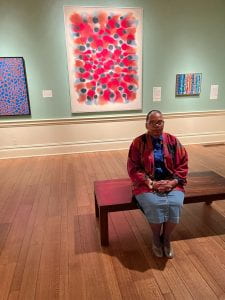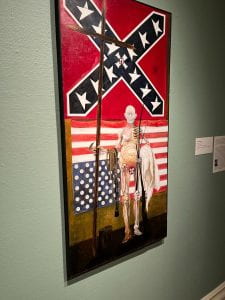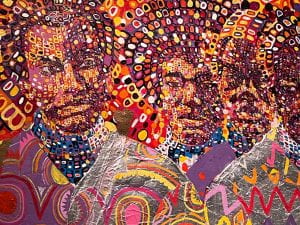In the heart of Memphis, the Dixon Gallery and Gardens has become a canvas for the vibrant tapestry of African American art, spanning decades and narratives that echo through history.
Dr. Ear nestine Jenkins, UofM professor of Art History, has helped the museum take a bold step in reshaping its identity by creating a display of what she calls one of the most challenging exhibits she’s ever done.
nestine Jenkins, UofM professor of Art History, has helped the museum take a bold step in reshaping its identity by creating a display of what she calls one of the most challenging exhibits she’s ever done.
In a recent conversation, she delves into the passions and hopes that have fueled the groundbreaking exhibition series “Black Artists in America: From Civil Rights to the Bicentennial.”
“Even with all of the diversity of styles that you would see, there is a very definitive aesthetic,” notes Dr. Jenkins, gesturing towards the carefully curated pieces.
The exhibit weaves a common thread, connecting disparate styles into a cohesive narrative that speaks to the struggles and triumphs of the African American community during this pivotal era.
The collection also features works by lesser-known artists who played crucial roles in shaping the discourse of the time.
Cliff Joseph, a Panamanian artist deeply invested in art theory, challenges viewers with a piece that touches on mental illness and the symbolism of oppression.
His collage of symbols, from the Confederate flag to an inverted penny, prompts contemplation on the historical and contemporary impl ications of these emblems.
ications of these emblems.
Beyond the canvas, Dr. Jenkins envisions a broader impact on the Memphis community. Her efforts extend beyond organized school visits, reaching out to local schools and community groups.
She emphasizes the importance of personal connections and community engagement, recounting her experiences integrating schools in the late 1960s.
“I talk to a lot of community groups. I’m from Memphis, born and raised there,” Dr. Jenkins shares. “Word of mouth is powerful. It takes a bit of a personal face.”
In a city like Memphis, where African American art initiatives are scarce outside of certain areas, Dr. Jenkins sees the exhibition as an opportunity to bridge gaps and bring art to communities that have long been underserved.

With the Dixon’s c efforts and Dr. Jenkins’s unwavering dedication, this groundbreaking series on African American art is not only transforming the museum’s identity but also leaving an indelible mark on the Memphis art scene.
Black Artists in America will be at the Dixon through January 14, 2024.

Be First to Comment